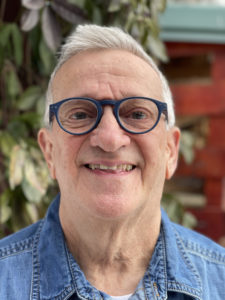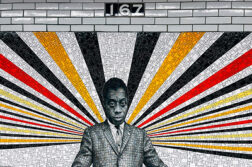
AS A CHILD my mother loved my gay friends. She always asked about them and encouraged me to play with them, stay overnight at their homes, and bring them to ours. One of the boys I was friends with, a boy everyone called a sissy, was completely comfortable with himself at a very young age, while I was ashamed.
One day my Mom asked, “Why don’t you play with Ricky anymore?”
“I don’t like him anymore. He’s a sissy.”
I wish she’d said, “I know he is but what are you?” But she didn’t. And I didn’t play with Ricky any more.
As an adult I prepared my friends before introducing them to Mamma. I’d share my tales of neglect to get them to buy into my victimhood narrative. I told them about not getting a toothbrush until I was thirteen, the hand-me-down clothes, the religiosity, and Mom’s catatonic state when I was a late teen.
Once I had briefed them fully, we went for a visit and my mother prepared a delicious meal of fried chicken, artisanal biscuits, speckled butter beans, fried okra, fresh cantaloupe, and sliced tomatoes. For dessert she served homemade butterscotch and homemade chocolate pie with merengue two-and-a-half inches high. Her love poured out of her in the form of an impressive spread, and I was grateful.
She was so excited and happy to meet my friends. She laughed and clapped her hands when they said something funny. She had this way of clapping her hands as an expression of ultimate joy; it was my favorite of Mamma’s gestures. I find myself doing the same thing when happy these days.
After the scrumptious meal and experience of Miss Alpha’s love, my friends invariably commented, “I love your mother. She is fabulous.”
At the time, I was dismayed, as I felt their admiration diminished my tale of woe. I understand now that she was remarkable in many ways, especially in her happy moments.
Yes, Mamma loved the gays. There was one boyfriend, Ben, of whom she was particularly fond. She owned a Casio piano player and he was just shy of piano prodigiousness. When he picked up the Casio and played a flawless rendition of “How Great Thou Art,” she clapped with glee.
Ben and I broke up and made up frequently. Once, during a break-up, my Mom called him on the phone and said, “Well, I talked to Jack and he says he misses you and he wants to hear from you.” Then she called me and said, “I talked to Ben and he says he misses you and he would like to hear from you.” We had a good laugh when we realized my fundamentalist mother was acting as a gay matchmaker.
Mom loved the gays, but she also watched a lot of Pat Robertson’s 700 Club on TV. She lived on $900 a month from Social Security. From that, she sent the 700 Club $100 on top of tithing at her church and giving money to my sister.
Robertson was running an ominous special report to generate money called something like, “The Coming Storm.” It was a series focused on maligning homosexuality. No leather daddy in assless chaps or camp drag image was too much for The Coming Storm, and Robertson implored every Christian viewer to fight this trend with every dollar they could send. Mother, absorbing Robertson’s anti-gay propaganda and funding his multi-million dollar hate industry, was more than I could take, and this kept me from coming out to her for a time.
Around then I realized that my family’s common refrain of “just don’t tell Mamma” was not really based on concern for Mamma or her reaction to me coming out. These were the same people who played a game of “Get Mamma” every time we got together as a family. Their caution was instead another form of homophobia. What they were telling me was that I wasn’t good enough to be accepted, that they were ashamed of me, and so I shouldn’t bring it up.”
Beyond my family, this was a time when one of the ladies of the South Carolina Bar Auxiliary made statements like “We only want to do charity work for pediatric AIDS because they didn’t do anything to deserve it.” This was also a time of Act Up and Queer Nation (Queers Bash Back!) and the first Gay Rights March in Columbia, South Carolina, a march I forewent because I still had too much internalized shame. It was a time to come out and burn the phony veneer of denial that made straight people comfortable. It was also a time when people were figuratively stepping over the bodies of my dying friends and literally laughing at us at the Reagan White House.
Against this backdrop, at forty, I made the trip to tell my mom that I was gay on National Coming Out Day. Referencing Robertson’s campaign against the gays, I said to my Mom: “I want you to know that when you are watching The Coming Storm, the gay people he is talking about are me and my friends that you love.”
At that moment and for the first time I could recall, my mother stepped up and performed the role of comforting parent. “I love you no matter what,” she said as she wrapped her arms around me. Instead of going off into the anticipated drama (“Why me Lord?”), she proclaimed her love for me. I left thinking that everyone had been wrong about her.
A week later I was on a business trip to Minneapolis and phoned her to say Hi. It was at this point that she tried to take back her unconditional love by stating: “I don’t approve of your lifestyle.” It sounded rehearsed. I concluded that she had sought Southern Baptist pastoral advice about the situation and had been told that her disapproval must be stated, you know, for my own good.
I had anticipated this and readied a response: “I don’t have a lifestyle; I have a life. I have a life that was created by God who made me in his image. Please don’t ever criticize God’s work again.” And she didn’t.
 Jack Calvin Hanna grew up in Lockhart, S. C., a small mill village in the Upstate. After college he wrote over 60 television programs for SCETV. Jack’s first play, Blue Camp, cowritten with Tim Caggiano, received readings at the Kennedy Center in D.C., the Rainbow Theatre Project, the Tapps Arts Center in Columbia, S.C. Blue Camp was awarded a full production (17 performances) by the Rainbow Theatre Project in November 2019. He and his husband Douglas Dorsey, and dog Lola split their time between D. C. and their cabin in West Virginia.
Jack Calvin Hanna grew up in Lockhart, S. C., a small mill village in the Upstate. After college he wrote over 60 television programs for SCETV. Jack’s first play, Blue Camp, cowritten with Tim Caggiano, received readings at the Kennedy Center in D.C., the Rainbow Theatre Project, the Tapps Arts Center in Columbia, S.C. Blue Camp was awarded a full production (17 performances) by the Rainbow Theatre Project in November 2019. He and his husband Douglas Dorsey, and dog Lola split their time between D. C. and their cabin in West Virginia.






Discussion11 Comments
Thank you so much for sharing this part of your life with me, Jack. Wonderfully written. I am so blessed by your friendship.
Thank you for a very poignant essay. It truly touched me and I am sure will touch many others. As a parent of 3 gay children, I hurt that you were hurt, but so happy you stood up for yourself. You ARE the person you were meant to be. Sending Mama Bear hugs your way.
I am so sorry that religion has once again been used as a weapon. The hurt, anger, fear and damage this has caused is immeasurable. Good loves and made you just as you are. Keep on speaking out.
Jack, that is a beautiful piece. While I was growing up in Union County, these lives were going on around me and I had no idea. My parents never said anything to us that might lead us to hate anyone.
Interesting that there were family members of their generation who were gay, but that did not seem to register with my mother partcularly. I’m sure Daddy knew the score, but never condemned anyone. Their partners were their “friends.” Always.
Thank you for helping me understand a bit more about where we grew up
A beautiful recollection. Eloquently shared. Am grateful to have read it. Thank you!
How beautiful. I am so grateful that you shared this with me. Is there a play in there?? Love you.
A beautiful, poignant story.
Well-written! A welcome sign of hope Would be terrific if it got reprinted .
Thank you so much, Jack, for your insight and handling of a dark problem many of us have faced. The weaponization of god has always been a sore spot for me. This was a beautiful tale of a mother’s love.
Your response to Mamma was divinely inspired, Thank you for a exceptional story and a mouth watering luncheon menu.
Thank you Jack! That was a fantastic read and a great insight into your coming out. Every LGBTQ person has their own story and something new can be learned from each and every one. Sharing our stories is what bonds us.